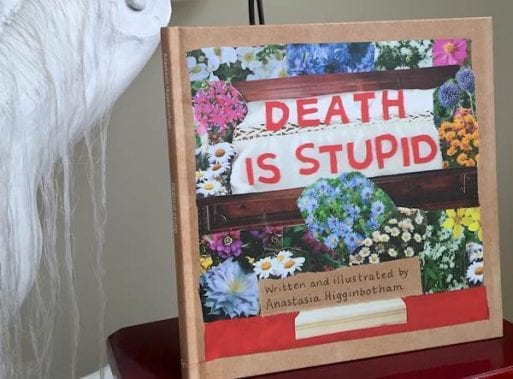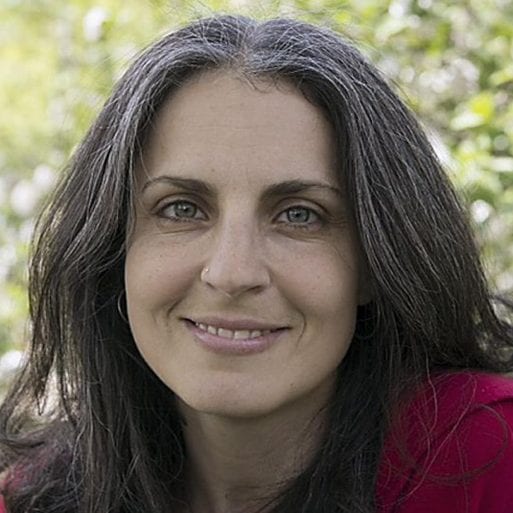
Credit: boingboing.net
“Death Is Stupid” is the second installment in the Ordinary Terrible Things book series from author Anastasia Higgenbotham. The Ordinary Terrible Things series tackles stories of common childhood crises to help readers ages 4-8 navigate troubles and trauma with “their senses on alert and their souls intact.” The first book in the series is called “Divorce Is the Worst” and it addresses the complex experience of being a child of divorce. “It’s for the best” is a common platitude kids are fed by adults. While that may be true, divorce is also painful and disruptive. “Divorce Is the Worst” is a child-centered portrayal of the experience, offering hope while also validating the suffering of children of divorce.
“Death Is Stupid” is another book that talks back to the aphoristic chestnuts adults might say to children to try and soften the blow of loss. “Death Is Stupid” features a boy whose grandmother has died. “When a loved one dies, people can say some pretty stupid things,” the book opens. “I know exactly how you feel,” “Don’t cry,” and “Just be grateful for the time you had with her” are listed as examples of such “stupid things.” These well-intentioned condolences are cold comfort in the face of grief, and “Death Is Stupid” lets kids know that they’re not alone if they’re frustrated with the inadequacy of such statements.
The little boy in “Death Is Stupid” doesn’t accept platitudes that don’t make sense to him. He talks back, asks hard questions, and in doing so provides a voice and an ally for any children who might be asking or wanting to to ask the same questions. “She’s in a better place,” an unspecified grownup tells the boy. He turns around and asks, “Would I be in a better place if I died?” The grownup, responsibly, responds, “Heavens no!” — belying the hollowness of the statement.

Anastasia Higginbotham
Credit: observer-reporter.com
The book also addresses the well-intentioned things people might say that inadvertently make things worse. “Now your grandma can watch over you,” a grownup tells the boy, and he, horrified, begins to imagine his grandma’s spooky spirit floating overhead, watching as he eats whipped cream straight from the can. The relatable humor and unflinching honesty in “Death Is Stupid” makes this book stand out from the array of children’s books on death and dying on the market.
“Death Is Stupid” doesn’t foist any particular belief system on its readers. The book states, “Beliefs about what happens after death are personal to each of us. We all have our own ways of understanding and not understanding this mystery.” The book encourages its young readers to discover what they believe through searching their own hearts and consulting sources they trust. Additionally, the book suggests simple coping strategies that kids can easily employ themselves. Miss talking to your loved one? You can always talk to your loved one in your imagination. Want to tell your loved one you miss them? Go ahead, you can still do it, even if they aren’t physically there to hear it.
“Death Is Stupid” is one of the best children’s books about death I’ve read. Many children’s books on this topic are beautifully written, but almost feel like they’re written more for the adult reading the book to the child than for the child themselves. This book doesn’t use poetic metaphors to make death more palatable for kids. It uses plain-spoken sentiments to speak directly to its young readers. It feels like a truly child-centered children’s book.

 “Death Is Stupid” by Anastasia Higgenbotham
“Death Is Stupid” by Anastasia Higgenbotham


 “Songbird” by Fleetwood Mac
“Songbird” by Fleetwood Mac
 First the Wealth Gap, Now the U.S. Has a Growing Health Gap
First the Wealth Gap, Now the U.S. Has a Growing Health Gap
 How to Comfort A Dying Loved One
How to Comfort A Dying Loved One














